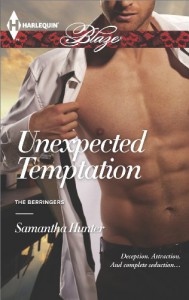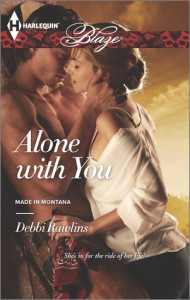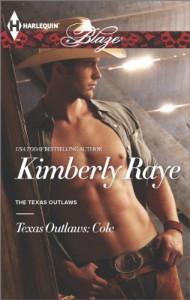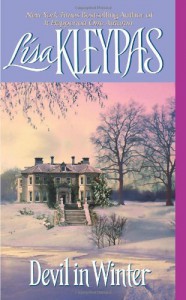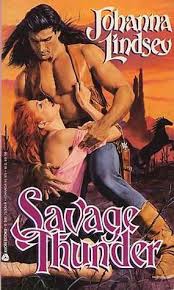
Review. Lord of Scoundrels, by Loretta Chase

After last week's disastrous reading experience, I felt I needed a palate cleanser. I also wanted to dip in to the "canon" of romance novels, and choose an older title that seemed to be a reader favorite. Finally, I love historical romance; contemporary is fun, but I often find that the cultural references in these books (social media, brands, even cities I've been to) sometimes throw me out of the story. I admit to loving journeys to places and time periods that are foreign to me; or at least, to places I might know, but that are given a very different atmosphere. This is why my historical and paranormal/fantasy TBR stacks are so much larger than the list of contemporary romances I want to read.
With that in mind, I chose *Lord of Scoundrels*, by Loretta Chase. It seems to be an especially beloved title for many romance readers, mostly because of its strong heroine and equally strong sense of humor; this last detail sold me on the book. I don't mind angst, and this story has plenty of that, but I find that well written humor says a great deal about an author's style and abilities. It's easy to pile on the drama, but it's *hard* to write dialogue or descriptions that will make a reader chuckle. In everyday life, there's something special about being able to make a loved one laugh: we delight in getting a reaction from telling a joke, or from eliciting the playful laughter of a baby. Sense of humor is a deeply personal trait, and often gets glossed over in fictional characters in favor of drama. But being able to forge a connection with someone through one's sense of humor is truly exceptional; playful teasing is an exhilarating part of courtship, because it focuses on seducing the mind instead of just the body.
There are two early scenes in *Lord of Scoundrels* where Chase turns a situation on its head (and gives the hero a good shock as well) through humor. In the first scene, Dain has entered an antique store and encounters Jessica and her brother Bertie. She's looking at an old watch, and Dain - thinking to shock her - shows her how the timepiece reveals a racy image. Instead of running for the hills, as he'd expected, Jessica calmly says that she's not naive, and that the watch will make a lovely gift for her grandmother. The second scene, one of my favorite in the novel, takes place at a cafe. Dain is trying to intimidate Jessica into selling him a valuable Russian icon, and proceeds to "ruin her reputation" when she refuses his terms. In the end, however, she points out that it's his reputation as a rake that's been damaged by his public seduction of Bertie Trent's spinster sister. Throughout these scenes, and the rest of the book, Jessica teases and good-naturedly laughs at Dain, and eventually succeeds in creating that all-important connection with the emotionally fragile Dain.
The handling of Dain's character is another standout feature in *Lord of Scoundrels*. As other reviewers have pointed out, it's easy to plant a fully-formed rake into a story, and proceed with the tale of his redemption. What makes Chase's book stand out is the heartbreaking prologue, where we see how, and why, Dain has become the man we meet in the first chapter. From his childhood experiences, we understand not only his cynical views on women and marriage, but also on parenthood and emotions in general. This background will become especially important near the end of the book, when he's offered the chance to become a better father than his own sire.
The final aspect of this book that I'd like to point out, because it felt so original, is the role reversal that takes place between Dain and Jessica. Once they're married, Dain goes to pieces emotionally, and it's Jessica who must lead him through the experience, going so far as to orchestrate the consummation. Dain is terrified of hurting Jessica, but also of betraying his own feelings, and it is she who takes control of the situation, becoming the alpha female who refuses to give up on her partner.
So those are some of the things I enjoyed about *Lord of Scoundrels*. However, there were a couple of bumps along the road for me as well. First is the character of Bertie (and here I could not but think of Wodehouse's Bertie and Jeeves books). There's clearly something not right in the head with him, although it's never explicitly stated what's wrong; he seems "simple," in the old sense of the word. Which is fine, and his presence in the first half of the book provides the spark needed to get the relationship going between Dain and Jessica. She's fiercely protective of him, as she has been of all the boys she's helped raise in her family, and she pursues Dain relentlessly to get him to stop influencing Bertie. But once Dain and Jessica marry, Bertie just disappears. We're told that grandma Genevieve's fiance is looking after him, but I still felt that he'd been conveniently used and discarded given the way he disappears.
Another issue I had is the apparent, sudden disappearance of Jessica's business ambitions. We know at the start that she's planning to open an antiques store, and that she has an exceptional eye for the value of objects. But once again, marriage makes this aspect of her life vanish. She and Dain are certainly unconventional enough to open such a store and not care what society said, so why let that plot thread die?
Finally, there is the issue of Jessica's rather violent way of calling out Dain after he humiliates her at the ball. We know she's an excellent markswoman, and that her shot was carefully calculated to do no lasting damage; I also understand that she felt she had to address Dain's extreme behavior with some of her own, to "speak his language" (of violence). However, in these cases I always try to imagine the situation reversed; how would I feel had it been Dain who'd shot Jessica to get her to capitulate? That, to me, would have been a very uncomfortable situation to read, like the "almost-rape" lovemaking scenes of old romance titles. I understand the intention, and the theatrical aspects of the scene, but it still jolted me out of the book.
However, the bottom line is that I enjoyed this book a lot, and fell in love with Dain and Jessica as a couple. I know the Comte d'Esmond, a secondary character, has his own book, and I'll be looking for it in the future. For now, though, I'll be making a detour to Paranormalandia. I did just finish reading another historical, but it's an ARC to be published in May, so I won't be posting that review until a few weeks from now. In the meantime, I'll raid the paranormal TBR pile for a change of scenery.

